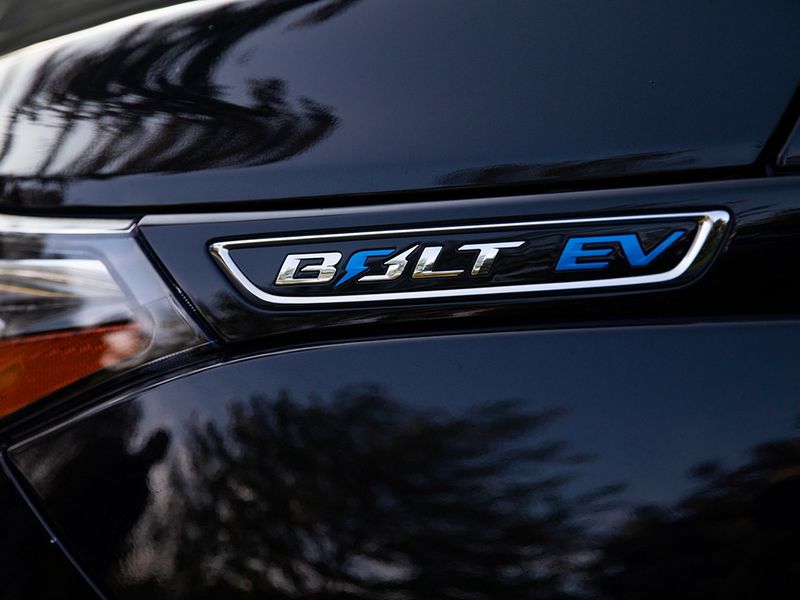
General Motors said it reached an agreement with partner LG Electronics Inc. to recover from the Korean company $1.9 billion of the $2 billion in costs for a recall of batteries in its Chevrolet Bolt electric vehicle.
GM had to recall all 143,000 Bolt and Bolt EUV models because of a manufacturing defect involving the battery that led to an increased fire risk.
As a result of the agreement, GM said its estimated reimbursement in the third quarter will offset $1.9 billion of the $2 billion in charges associated with the recalls, based on accruals under U.S. accounting standards. GM said in a news release that LG agreed to cover recall costs and expenses. The final recall cost will depend on the number of battery modules replaced.
GM will recoup nearly all of the costs of the recall, showing that CEO Mary Barra got the company’s battery partner to assume nearly full responsibility. With the settlement, both GM and LG can begin moving past the costly and embarrassing episode that had the automaker telling Bolt owners to limit how much to charge the car’s battery and advising them to park outdoors and 50 feet from other vehicles.
The two companies will continue to partner to make GM’s new EV batteries through a joint venture called Ultium LLC. The jointly owned company is building a battery plant in Lordstown, Ohio, and will set up another in Spring Hill, Tenn.
“LG is a valued and respected supplier to GM, and we are pleased to reach this agreement,” Shilpan Amin, GM vice president, global purchasing and supply chain, said in the statement. “Our engineering and manufacturing teams continue to collaborate to accelerate production of new battery modules and we expect to begin repairing customer vehicles this month.”
Earlier Tuesday, LG Chem Ltd. and LG Electronics said they will shoulder a combined $1.2 billion for the recall, reassuring investors concerned about a rift between the conglomerate and a major carmaking customer.
GM in August expanded the recall and at the time estimated the cost at $1.8 billion.
The LG group companies said on Tuesday that talks over the costs had ended. They booked most of their 1.4 trillion won ($1.17 billion) in costs in the July-September quarter although some were booked in the previous quarter.
For the latest quarter, LG Chem, whose wholly owned battery unit LG Energy Solution supplies batteries to GM, will take a charge of 620 billion won while LG Electronics, which assembles the cells into battery modules and packs, will book 480 billion won in costs, the companies said.
“LG’s swift agreement with GM on recalling Bolt electric vehicles provides clarity on the profit impact and the solidity of its partnership with GM,” Horace Chan, a Bloomberg Intelligence energy analyst, said in a note. “LG needs to ensure there are no more large-scale defects in the future, as investors’ patience has been stretched by a series of recalls over the past year.”
Last month, GM said it found a fix to avoid battery fires in the Chevrolet Bolt EV, and that manufacturing processes for lithium-ion batteries in the model and the larger Bolt EUV have been improved. GM linked the fires to two defects: folded separators and torn anode tabs.
LG resumed production of new battery modules this month to replace defective ones and start building the Bolt again.
GM said it confirmed 13 fires and no fatalities stemming from the defects.
Shares of LG Chem and LG Electronics closed up 4.2 percent and 3.3 percent, respectively, on Tuesday in Seoul with investors relieved that the uncertainty over the recall costs has gone.
LG Energy Solution added that it plans to resume working on its initial public offering, which had been suspended in August due to the lack of clarity over the recall costs.
Bloomberg, Reuters and Automotive News contributed to this story.

